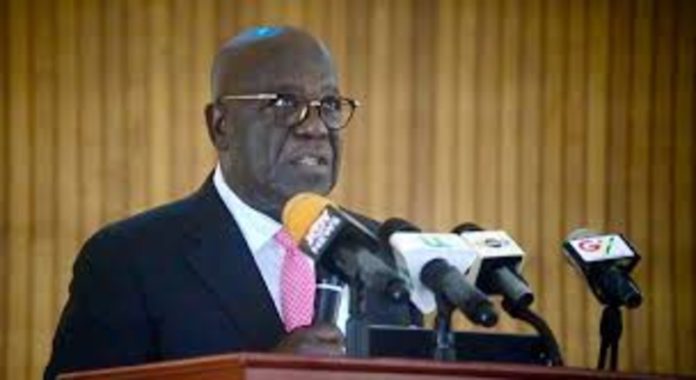Renowned Ghanaian business magnate Sir Sam Jonah has unequivocally rejected claims of political favouritism surrounding Engineers & Planners’ (E&P) acquisition of the transformative Black Volta Gold Project.
Sir Jonah asserted that the deal—valued at $100 million in financing from the ECOWAS Bank for Investment and Development (EBID)—is a purely merit-based and commercially viable transaction, heralding it as a long-overdue and essential shift towards empowering Ghanaian-owned enterprises in the nation’s critical extractive sector.
Speaking at a ceremony celebrating the landmark financing agreement between E&P and EBID, Sir Jonah passionately declared:
“Let us be clear: this is not a favour. This is not political patronage. This is not crony capitalism.”
His powerful words aimed to debunk any perception that the deal was anything other than a legitimate business venture, emphasising its role in a broader national agenda to foster indigenous ownership in Ghana’s lucrative mining industry.
Sir Jonah described the moment as “historic” and a “turning point” in Ghana’s decades-long relationship with its mining sector.
He celebrated the Black Volta Gold Project as the first large-scale, wholly Ghanaian-owned gold mine, hailing it as a powerful symbol of what can be achieved when local vision is coupled with effective execution.
“Today, we are not merely here to witness the signing of a facility agreement. We are here to celebrate a milestone, affirm a vision, and embrace a bold new chapter in Ghana’s economic story—led not by foreign interests, but by our own,” he proclaimed.
He further underscored the integrity of the acquisition, noting that the deal was signed in October 2023 “with no fanfare, no interference, and no backroom dealing,” reinforcing his argument that the project’s success is firmly grounded in “merit, backed by a strong balance sheet, and grounded in solid business fundamentals.”
This transparency stands in stark contrast to previous large-scale resource deals in Ghana, which have sometimes been shrouded in controversy, leading to public mistrust.
A long-standing advocate for greater Ghanaian ownership across the mining value chain, Sir Sam Jonah showered praise on Ibrahim Mahama, the founder of E&P, for his foresight, persistence, and entrepreneurial spirit.
“You are living out my dream. A dream I’ve held for decades. A dream that many believed was too ambitious,” Jonah told Mahama, recounting their first meeting in 1998 when a young Ibrahim Mahama sought his advice on entering the mining sector.
“Back then, I told him and his partner that while alluvial gold mining was unlikely to yield sustainable returns, hard rock mining was the future… That young man listened. He built a company. He earned the respect of the industry,” Sir Jonah reminisced, illustrating Mahama’s journey from a nascent entrepreneur to a major player in Ghana’s mining landscape.
This narrative highlights the importance of mentorship and perseverance in Ghana’s challenging business environment.
Beyond celebrating this significant achievement, Sir Sam Jonah seized the opportunity to advocate for crucial policy reforms designed to favour local ownership and drive long-term national economic transformation.
“Ownership matters. Equity matters. And national pride demands that we do more to ensure that our people are at the heart of our mineral wealth,” he declared, echoing a sentiment that has gained considerable traction across the African continent.
He drew a powerful comparison with South Africa’s Black Economic Empowerment (BEE) framework, which aims to address historical inequalities by increasing Black participation in the economy. Sir Jonah urged Ghana to create similar enabling conditions for local entrepreneurs to thrive.
“Our entrepreneurs are not lacking in talent. What they often lack is access: access to capital, access to opportunity, and access to policy support,” he elaborated, identifying key barriers that often hinder indigenous businesses from competing effectively with larger, foreign-backed entities.
Ending with a rallying call, Sir Jonah implored all stakeholders to view the Black Volta Gold Project not as an isolated success but as a foundational blueprint for national resource empowerment.
“Let this be the dawn of a new era… from resource extraction for others to resource empowerment for ourselves,” he urged, articulating a vision for a future where Ghana’s vast mineral wealth directly fuels its own sustainable development and benefits its citizens more directly.
The Black Volta Gold Project, located in the resource-rich Bono Region, is expected to create significant employment opportunities and contribute substantially to government revenues through taxes and royalties—further demonstrating the tangible benefits of local ownership.
This landmark deal serves as a beacon of possibility for other West African nations striving to gain greater control over their natural resources and drive indigenous industrialisation.
Source: Myjoyonline.com
ALSO READ:



